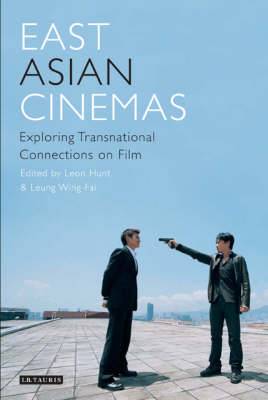|  East Asian Cinemas - by Leon Hunt, Leung Wing-Fai East Asian Cinemas - by Leon Hunt, Leung Wing-Fai
I.B. Tauris, 2008, UK, £ 15.99, ISBN: 9781845116156
Book content
This 272-page volume is divided into four parts:
Part 1: Global Encounters of the First Kind;
Part 2: All Changing on the Eastern Front;
Part 3: Made in Translation - Transnational Identities; and
Part 4: How the West Was Won? Asianisation and Beyond.
This is a collective work gathering various papers that explore developments in the global popularity of East Asian cinema, from Chinese martial arts, through Japanese horror, to the burgeoning Korean cinema. It examines changing cinematic traditions in Asia alongside the 'Asianisation' of western cinema. It explores the dialogue not only between 'East' and 'West', but between different cinemas in the Asia Pacific.
About the Authors
Leon Hunt is a Senior Lecturer in Film and TV Studies, Brunel University. His books include 'Kung Fu Cult Masters: From Bruce Lee to Crouching Tiger'. Leung Wing-Fai is Learning Development Officer (Film) at the National Museum of Photography, Film & Television, Bradford. Her 'Lost in Translation' column appears on the Hong Kong Express website.
Review
A man on a roof top is pointing a gun at someone in cuffs. The blue sky takes most of the frame and the scene conveys a feel of universality. It could happen with anyone, anywhere.
This still comes from the crime film Infernal Affairs. The recent crime drama made in the international city of Hong Kong is one of the biggest local box office successes in the past decade. HK filmmakers have integrated to their vocabulary words like universality, globalisation and international, while expanding the scope of their influence. Martin Scorsese did a remake of the film with Leonardo DiCaprio (The Departed). The picture here aptly embodies a facet of the current East Asian film industry and is a perfect cover for Hunt’s and Leung’s book.
IA is one example, among others discussed in East Asian Cinemas, demonstrating the recent exchanges between films from the West and from East Asia. That is between two of the world cinema most important centres.
Clearly the present volume has a slow start and is sometimes too theoretic for its own good. East Asian Cinemas is a series of academic essays after all. Yet it offers more to the ordinary film buff than just endless theorising, abstruse and tedious articles. It blends theory with more down to earth studies. If the regular East Asian film enthusiasts get past the first few chapters, patience and effort are rewarded.
More concrete studies with hard facts are especially interesting in Leung’s chapter from part two: Infernal Affairs and Kung Fu Hustle: Panacea, Placebo and Hong Kong Cinema. It explores how industryites have sunk the HK film industry and how these two abovementioned blockbusters could be models of solutions to the current problems the HK cinema is facing.
A couple of additional chapters in the last part are especially worth mentioning here. They, alone, makes the purchase compulsory for anyone interested in the development of East Asian movies and the part they take in the globalised cinema scene. Gang Gary Xu’s Remaking East Asia, Outsourcing Hollywood and Leon Hunt’s Asiaphilia, Asianisation and the Gatekeeper Auteur: Quentin Tarantino and Luc Besson describe the process with which East Asian films cross over to Hollywood or Europe.
The former analyses the remakes of Asian films by Hollywood focusing on the King of Remake, Roy Lee, a pragmatist who searches the Far East side of the Asian continent for remake material and remodels them to local audience taste (he brought The Eye and The Ring to US). It also discusses how East Asian films and most specifically Chinese language films have become more Americanised and oriented toward a globalised market.
The latter chapter deals with two contemporary influential Western directors who have used the draw of Asian exoticism for the production of various films.
Quentin Tarantino has actually stated he wished to become an Asian director. His Kill Bill 1 and 2 were completely inspired by HK and Japanese action cinemas, yet exuded a sort of Orientalism. Was it a tribute or mere exploitation? French filmmaker Luc Besson on the other hand has yearned to give an answer to the American hegemonic cinema by creating his own kind of European cinema. One where he has transferred the specificity of Asian films into a European context. His productions Yamakazi, Les Fils du Vent or District 13 for instance display a French sport called Parkour, or art of movement. This sport, if properly shot, can offer as much thrills as choreographed kung-fu fights from East Asian action flicks.
These two examples show that everybody is influenced by everybody. One recurrent phrase in the Infernal Affairs series - what goes around, comes around - not only pertinently sums up the trilogy but also applies to this mutual influences between the Hong Kong (and East Asian in general) and the Western film industries.
In short:
The topicality of the issues discussed here (how we see East Asian films now, how is it influenced by or it influences the rest of the world cinema?) provides added value to the volume. For that, East Asian Cinemas has earned a spot in every Far-East film enthusiast’s bookshelf.
Thomas Podvin, Nov 14, 2008
|
